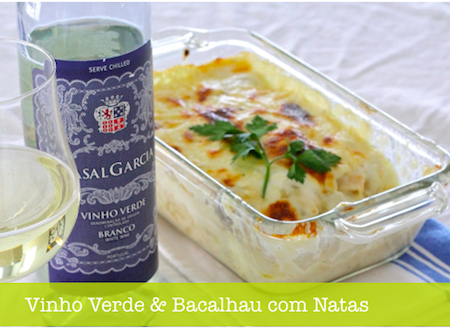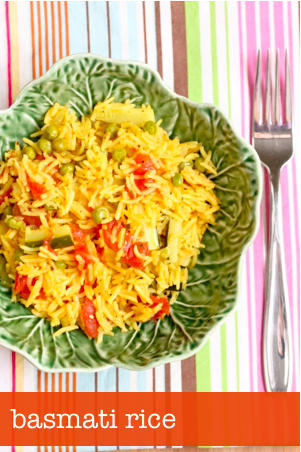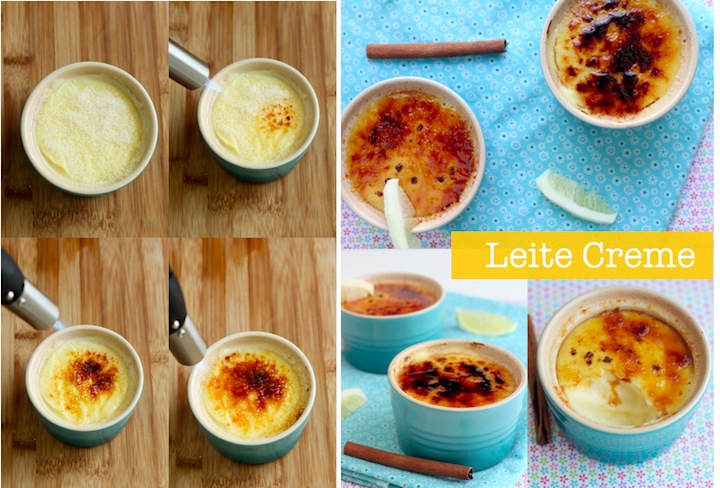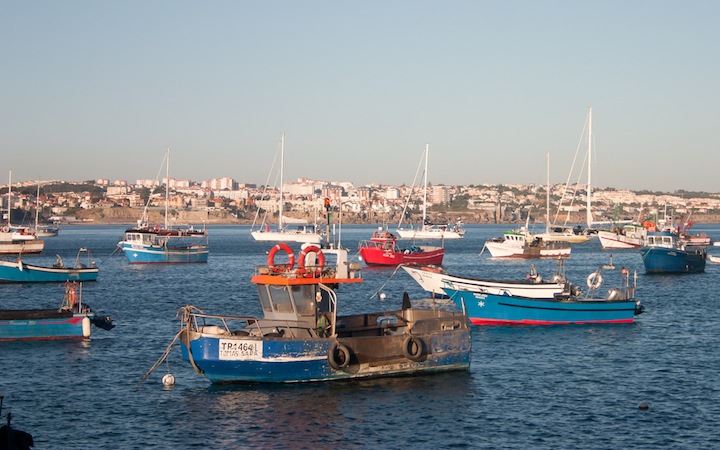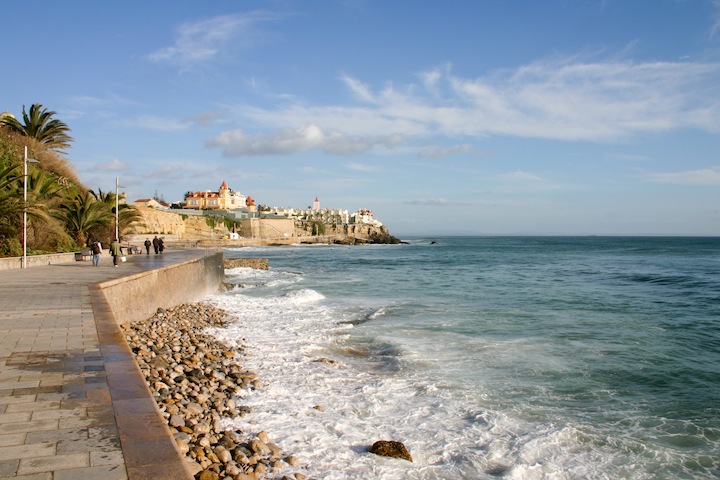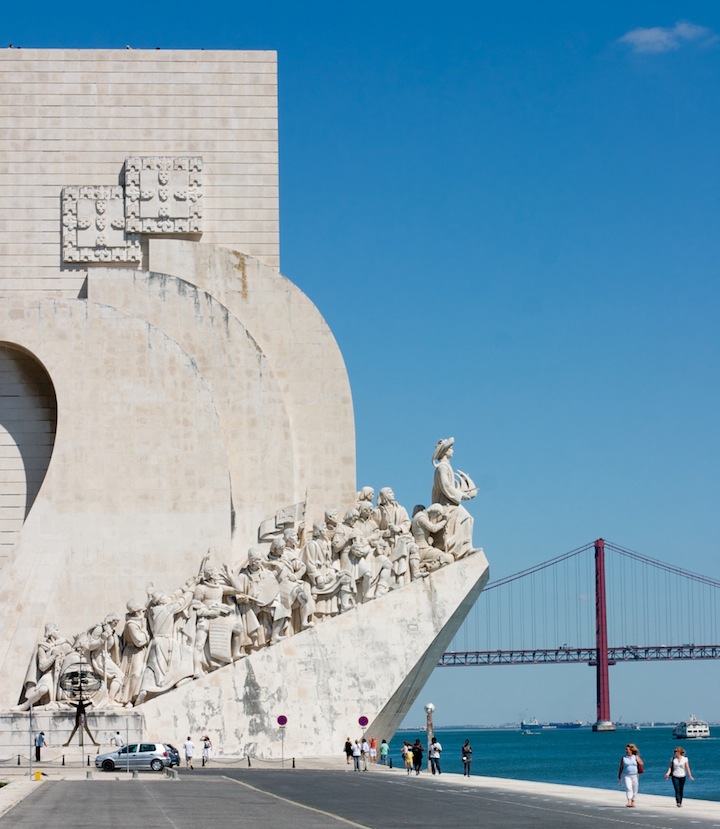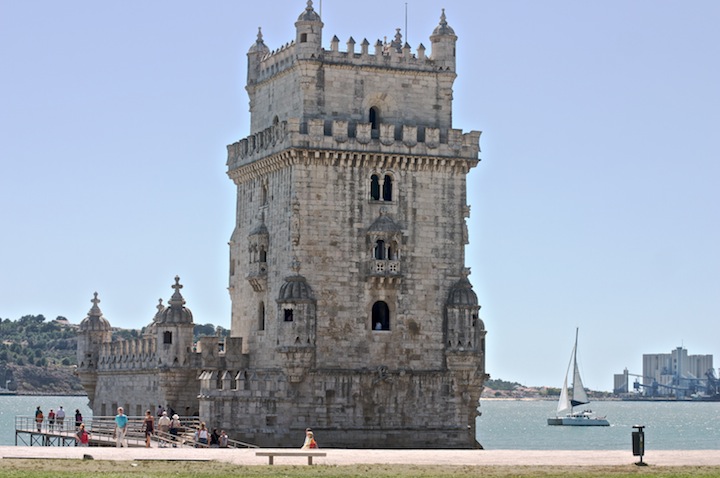
Season with Spice is about connections. A convergence of cultures. A place to explore; a place to interact and learn from people who are linking the New Spice Route through the stories they share, and the dishes they cook.
In this spirit of travel and discovery, we will be introducing each of our featured bloggers on the New Spice Route. And we begin this Culinary & Cultural journey with Teresa from Portugal.
Teresa moved to Florida in 2009, but through her blog, Delicious Wordflux, she continues to represent her home. And who better than Teresa - a former journalist for a Portuguese tourism magazine, director of an art gallery, and more recently as a 'Portuguese explorer' - working in international relations - traveling throughout Europe, to Russia, China, and the former Portuguese colony of Cape Verde.
Hi Teresa, it's wonderful to have you here, and linking the New Spice Route through Portugal. Which part of the country are you from?
I grew up in Braga, capital of Minho region in North of Portugal. It’s the third biggest city and the oldest one in the country. It is known as the Portuguese Rome and the city of archbishops, having more churches per square meter than any other city, with a mix of different architecture and artistic styles, showing the rich influence through the centuries.
What would you normally find on the dinner table in Braga?
Everybody in Portugal knows that in the North they will be more than well served with dishes like bacalhau à Narciso and bacalhau a Gomes de Sa (salted cod dishes), sarrabulho (stew seasoned with cumin), rojões à minhota (pork dish with wine and bay leaf), roasted lamb with potatoes, frigideiras do cantinho (puff pastries stuffed with pork and beef). And sweets like leite-creme (milk custard), pudim de abade de priscos (bacon pudding), toucinho do céu (bacon from heaven), suspiros (meringue cookies). And a bottle of light Vinho Verde (green wine). My grandfather actually used to have a little vineyard of this kind.
‘Bacon from heaven’? Maybe it’s best we don’t ask, and let everyone imagine what it could be. But yes, we can’t mention Portuguese food without wine. Is Vinho Verde your favorite?
That’s difficult to answer since we have so many demarcated regions and each one has great wines. I would probably choose Alentejo and Douro regions. Yet, I can’t forget the Vinho Verde. It’s so refreshing.
How about food in other areas?
With the Atlantic and Mediterranean Sea coastlines, seafood is king in Portugal. From fish stews, grilled sardines, fish au salt, bread and seafood stew, octopus rice or squid salad and of course the thousand and one ways to cook bacalhau (salted cod), there is an enormous diversity of regional dishes.
How about international influences? Portugal is over 96% Portuguese, but there must be examples of cultural melting pots in the country?
How about international influences? Portugal is over 96% Portuguese, but there must be examples of cultural melting pots in the country?
Certainly, mostly from immigrants from the former Portuguese colonies, like Brazilian, African and Indian.
That's great that there are still so many influences from Portugal’s significant role in the Spice Trade 500 years ago.
Absolutely. Vasco da Gama even introduced new flavors to Indian cuisine, like chili pepper from the Americas, which helped in the development of what curry is today. And he brought home many spices, introducing new flavors that modified Portuguese dishes.
Which spices are most commonly used in Portuguese cooking?
We use many spices and herbs like turmeric, saffron, cumin, pepper, nutmeg, paprika, bay leaf, parsley, cloves, chili, rosemary, coriander, oregano, curry powder. For the sweets: cinnamon is a favorite flavor, but also citrus zest, vanilla.
Speaking of sweets, is the ‘Portuguese Egg Tart’ a popular treat in Portugal? Or only in former Portuguese colonies like Macau and Melaka?
Oh, sweet Macau! I went to Macau once and the Portuguese cultural influence is notable in the region and of course in the food as well.
The art of pastry is very old in Portugal, originating in monasteries from the Middle-Ages. One of most famous is the Belem pastry, translated to Portuguese egg tart. All the pastries shop sell it, but the most unique and original one is from Belem, right beside the Jeronimos monument in Lisbon. You can smell the cinnamon and creamy milk from afar and you'll see a huge line of people waiting to try the famous sweet. The house keeps a secret recipe - we have this expression that says: 'fechado a sete chaves', which means it's very well kept, and only three people can access it.
Definitely sounds like it is worth the long wait. With all of these wonderful Portuguese dishes you’ve mentioned, is it easy to find the right ingredients in Florida to cook them at home?
I miss some good quality Portuguese ingredients like salted cod, olive oil, olives, sea salt, rich local cheeses, bread, a local pear called Rocha, and chestnuts from Trás-os-Montes region.
Nevertheless I’m still a happy cook in Florida. There are succulent oranges; delicious blueberries; meyer lemons are my favorite; and now is the mango season in Merritt Island, very close to us and I love mangoes. We have local organic sugar and good honey, so life is good.
Many chances to mix these local ingredients with your Portuguese dishes.
Yes, during Christmas I prepared a traditional dessert, rabanadas, with local honey. I think it’s becoming a tradition on this side of the family here which makes me happy.
That’s exactly why you represent Portugal on the New Spice Route. Sharing your culture through your kitchen. Thank you so much Teresa!
But before we go (not just meaning our last question, but also before we go to Portugal because you have absolutely convinced us), can you tell us the must-see places to experience Portuguese food and culture?
There are so many must-see!
Estoril Coast - I lived for many years in the seaside resort towns of Estoril & Cascais. I madly love this place. It’s also a fishing port with beautiful beaches and of course fresh fish. Not to miss are the fine restaurants in the Guincho area, which among other delicacies serve a delicious fish au salt.
Óbidos: Every July this town hosts a medieval market, recreating the traditions and medieval style meals of Europe. In March, it also hosts an amazing international festival of chocolate!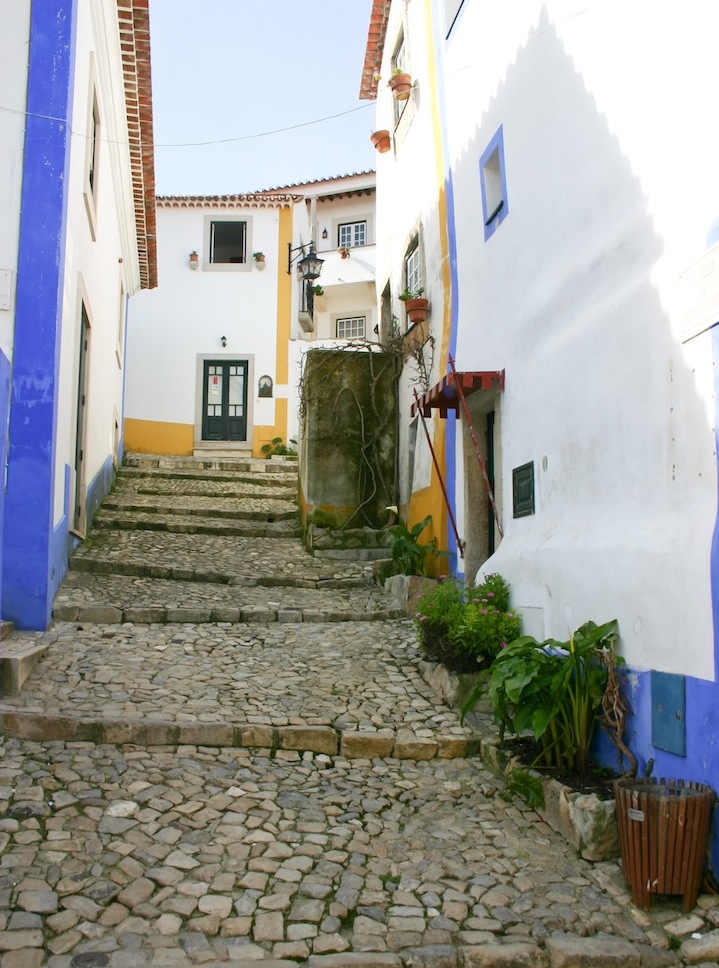

Braga because it's so full of history that any little rock you step on will probably have some archaeological interest.
And of course Lisboa (Lisbon)...
All images in this article are courtesy of Teresa at Delicious Wordflux

